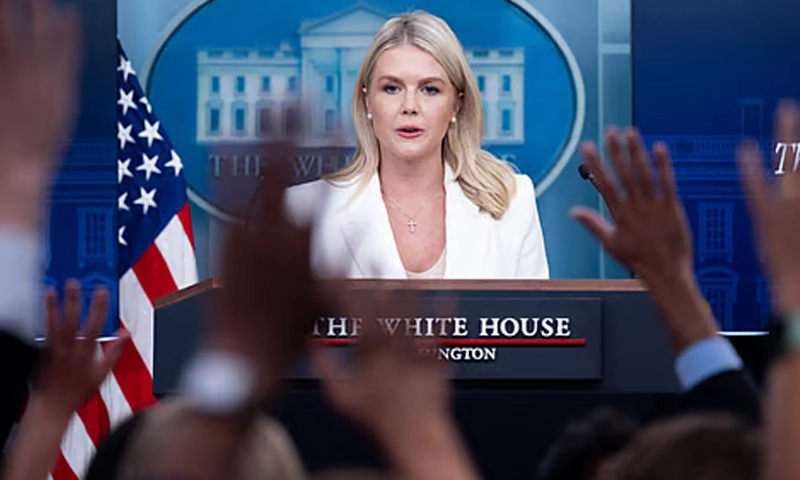- Web
- Feb 05, 2026
White House says July deadline for higher tariffs may be extended

WASHINGTON: US President Donald Trump’s administration could extend a July deadline when higher tariffs on imports from dozens of countries are set to kick in, the White House said Thursday.
While Trump has imposed a sweeping 10 percent tariff on most US trading partners this year, he unveiled — then halted — steeper rates on dozens of economies while negotiations took place.
That pause is set to expire July 9.
Asked if there were plans to further the pause, Press Secretary Karoline Leavitt told reporters: “Perhaps it could be extended, but that’s a decision for the president to make.”
“The deadline is not critical,” she told a media briefing.
“The president can simply provide these countries with a deal if they refuse to make us one by the deadline,” Leavitt added.
This means Trump can “pick a reciprocal tariff rate that he believes is advantageous for the United States,” she said.
More to read: Hegseth rubbishes US TV channels’ claims of Iran strikes failure
On the progress of trade negotiations, Leavitt added that US Trade Representative Jamieson Greer is “working very hard” and has had “good and productive discussions with many of our key trading partners.”
Meanwhile, trade talks between India and the US have hit a roadblock over disagreements on import duties for auto components, steel and farm goods, Indian officials with direct knowledge said, dashing hopes of reaching a deal ahead of President Donald Trump’s July 9 deadline to impose reciprocal tariffs.
The deadlock marks a sharp shift from earlier optimism, following Trump’s claim that New Delhi had proposed a “no tariffs” agreement for American goods, and officials from both sides suggesting India could be among the first countries to strike a deal on the new US tariffs.
India is pushing for a rollback of the proposed 26 per cent reciprocal tariff set to take effect on July 9, along with concessions on existing US tariffs on steel and auto parts.
But US negotiators have not yet agreed to the demands, three Indian government officials told Reuters.





